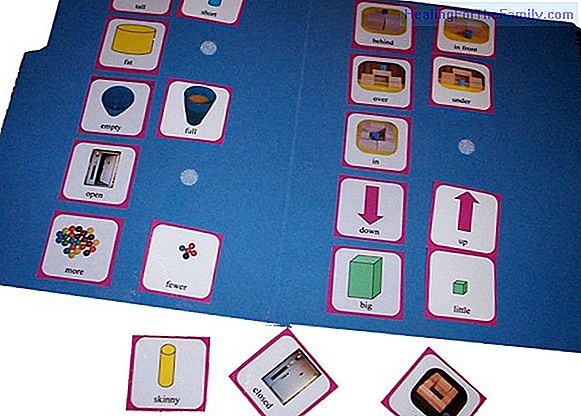How to help children sleep alone in their room
Getting the child to sleep alone in their room is not always easy. Many times because of the habit that children acquire of sleeping with their parents from an early age, sometimes due to fears, and sometimes due to regressions, they make the sleep routine when the child sleeps in their own space co
Getting the child to sleep alone in their room is not always easy. Many times because of the habit that children acquire of sleeping with their parents from an early age, sometimes due to fears, and sometimes due to regressions, they make the sleep routine when the child sleeps in their own space complicated.
Sleeping is another routine for the child

There are thousands of methods to teach children to sleep alone. From the most well-known and controversial as the Estivill method, to other more gradual methods for less "disciplined" parents, all based on behavioral techniques whose objective is that children learn to sleep alone in their room and using negative or punishment stimuli ( if he cries, ignore it). These types of methods seek the quick and apparently most effective solution without paying attention to the negative effects in the short or long term that they may cause.
Another more effective method is to provide routines from affection, patience and common sense and based on positive stimuli. This method is "cooked" slower but effective one hundred percent.
How to help the child sleep in his room
If the child is one of those who has been used to sleeping with his parents for quite some time, it is not enough to ask him to change his room.
- The child can be motivated by explaining that sleeping in his room he will have more space and he will be more comfortable. This space will be yours and therefore you can choose how it will be.
- The child may have permission to do what is not allowed in his / her parents' bed. Read a while inside before turning off the light, put any toy, etc.
- If the child is already prepared to use the incentive system. A table will be used in which together you will agree on the prize for carrying out the desired behavior. On the other hand, after 2 years it is common for regressions to occur in children. The causes of these regressions can have different reasons: from the birth of a brother to the fear of sleeping alone. And is that at this age of 2 years are frequent nightmares because of their imagination and fear of the dark. These factors intensify the fear of sleeping alone. To relieve your discomfort it is recommended:
- Leave an indirect light to see what is still in your room
. Ie leave the door ajar to give the light of the corridor, or leave the blind half up.- Keep the routine of going to bed at the same time
and always doing the same. For example, read a story. - If you wake up uneasy
, accompany him until he relaxes.Mistakes that are made when the child is sleeping
When helping children to sleep alone, you should always follow the same routine, which can include a kiss or wish you good night. Something should always be done that is available to us and be brief. Everything that is done to help the child to sleep can not exceed what is essential, for example, picking them up to sleep, going to bed with them, etc.
Since it can become a difficulty with the passage of time or if there are different circumstances such as a move, that other relatives take care of them, etc. In addition to this type of aid there are other types of strategies that we usually use and that have immediate results but imply disadvantages in the future:
- Getting angry because he resists sleeping alone and behaves badly.
If you do it, the child understands that the father or mother will not be angry for a long time and will end up yielding. - Give arguments why you should sleep alone and not be afraid to do so.
If it is done, the child will always want more. - Help him with things he can do himself
like going to the bathroom alone or getting up to drink water. Addressing these demands implies that the child gets the attention of the adult and can postpone the time of sleep.












